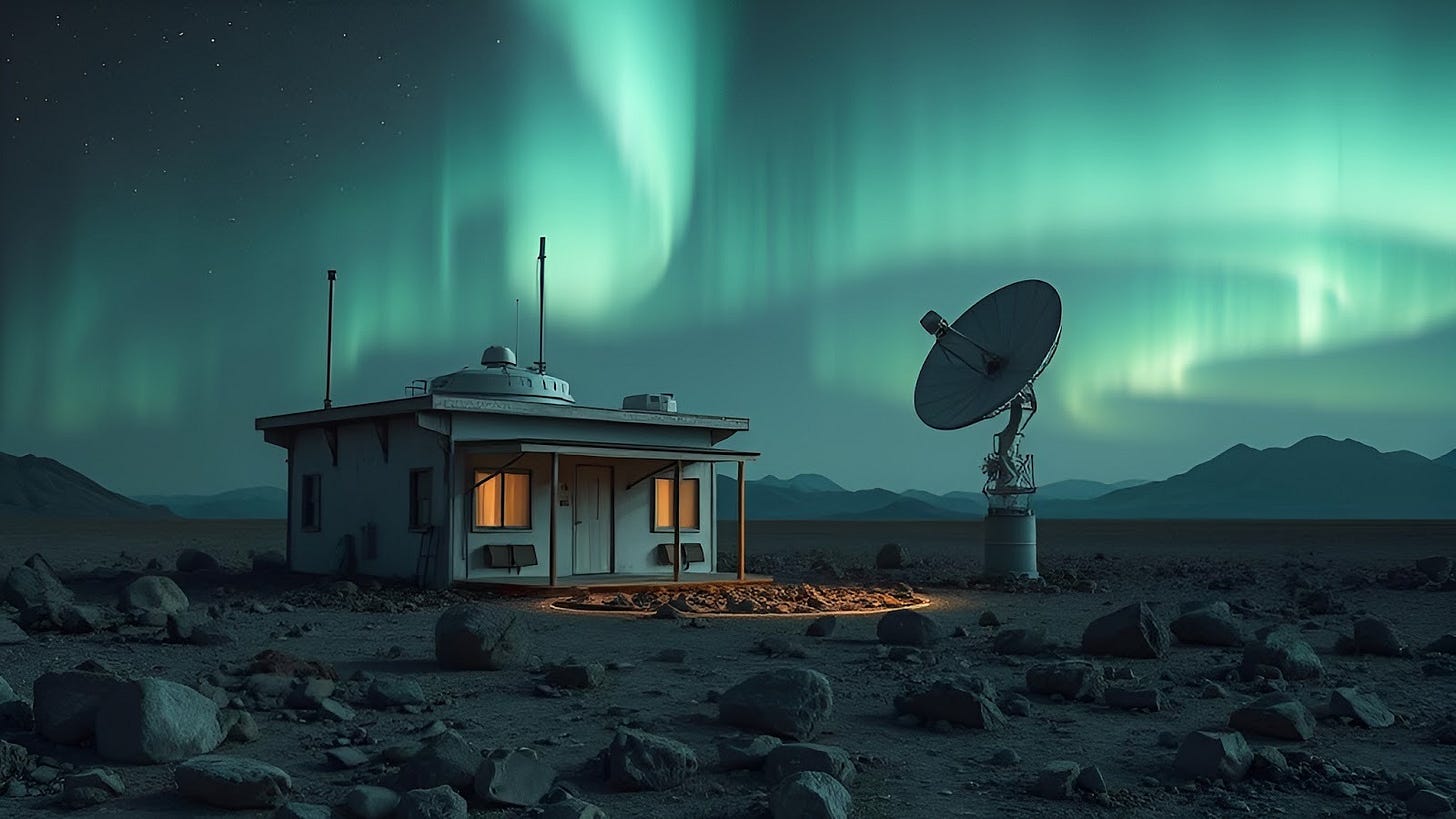The Listening Station
Short Fiction: A listening agent arrives on a remote planet under mysterious circumstances
Alien thunder cracked and flashes of purple lightning surrounded the landing craft as it drifted through violet cloud cover, its hull streaked with scorch marks and soot where the thrusters had fired time and again. It rocked side-to-side as it settled into a hover, like a rowboat loading passengers, then descended the last few feet to the cracked, rocky ground streaked with iron oxide.
The atmosphere shimmered with static energy from the recently departed magnetic storm, and the air was poisonous. Harland stepped out of the craft with an oxygen mask and goggles strapped tightly to his face, carrying a worn brown case. He was a veteran monitoring agent, and his uniform showed it—tattered insignia from a long-defunct space agency adorned the shoulders, and the straps and fasteners no longer showed the neat, orderly attention they once did.
The grizzled traveler set the case on the ground and detached a geolocating probe from his chest pack. When he had been a young agent, Harland thought the probes resembled old-timey microphones and had to resist the urge to pantomime a lounge singer act to amuse himself, but those days were long gone.
Harland removed the cover from the end of the probe to expose the spike, then knelt, and with one firm thrust, buried it to the hilt in the firm, rocky ground. The ball transmitter crackled to life with static and began beeping a soft, rhythmic tone.
The horizon had begun to change color, from the violet color of the departing storm to the teal green that accompanied the auroras caused by the setting twin suns. From behind his corroded goggles, Harland scanned the empty horizon as if expecting a ghost. He tapped the set switch on the bulky atmospheric monitor strapped to his wrist, and it glowed green.
In the distance, the listening station loomed—the lower-third of the dished antenna covered in red dust, the station’s metal siding blistered by time. Harland covered the short distance from the landing site in quick fashion and when he pressed the airtight door closed, he found the station exactly as he expected—dark and cold with dead CRT monitors and paper printouts curled on the floor.
Huge circulation fans hummed from somewhere above as he fired up the oxygen generators, and the temperature of the station rose to living conditions. Warm auxiliary lighting flickered to life.
The mask and goggles made a sucking sound as he removed them, their red outline marking the boundary of his less-dirty face beneath. He took a deep breath of the station’s oxygen-rich air, then exhaled and muttered.
“Still here,” he said, without really understanding why.
Harland set the case on a dust-covered console and opened it, removing a device that was an ungainly fusion of analog dials, vacuum tubes, and a pulsing quartz core. He flipped a mechanical switch and the transceiver-relay’s tubes began to glow with a soft amber light. The device looked cobbled together, like it had been hand-rebuilt again and again.
He wired it into the station’s ancient comms panel, and sparks flew as it drew life. A steady hum filled the room, blending with the planet’s background radio hiss.
The agency’s version of a percolator bubbled to life as he fixed himself a mug of hot coffee. There was a message scratched into a tabletop.
“IT’S ALWAYS DIFFERENT.”
On the metal bulkhead above the console, a different message.
“SHE ARRIVES TOMORROW AT NOON. DON’T GO OUTSIDE.”
Keep reading with a 7-day free trial
Subscribe to Until Night Falls to keep reading this post and get 7 days of free access to the full post archives.



